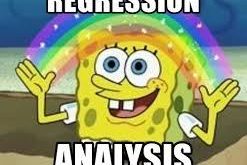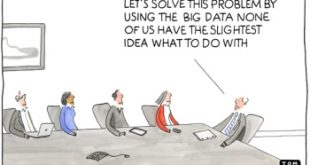Dynamic and static interpretations of regression coefficients (wonkish) When econometric and statistical textbooks present simple (and multiple) regression analysis for cross-sectional data, they often do it with regressions like “regress test score (y) on study hours (x)” and get the result y = constant + slope coefficient*x + error term. When speaking of increases or decreases in x in these interpretations, we have to remember that it is a question of...
Read More »Why all RCTs are biased
Why all RCTs are biased Randomised experiments require much more than just randomising an experiment to identify a treatment’s effectiveness. They involve many decisions and complex steps that bring their own assumptions and degree of bias before, during and after randomisation … Some researchers may respond, “are RCTs not still more credible than these other methods even if they may have biases?” For most questions we are interested in, RCTs cannot be more...
Read More »How to teach econometrics
How to teach econometrics Professor Swann (2019) seems implicitly to be endorsing the traditional theorem/proof style for teaching econometrics but with a few more theorems to be memorized. This style of teaching prepares students to join the monks in Asymptopia, a small pristine mountain village, where the monks read the tomes, worship the god of Consistency, and pray all day for the coming of the Revelation, when the estimates with an infinite sample will...
Read More »Markov’s inequality (wonkish)
One of the most beautiful results of probability theory is Markov’s inequality (after the Russian mathematician Andrei Markov (1856-1922)): If X is a non-negative stochastic variable (X ≥ 0) with a finite expectation value E(X), then for every a > 0 P{X ≥ a} ≤ E(X)/a If the production of cars in a factory during a week is assumed to be a stochastic variable with an expectation value (mean) of 50 units, we can – based on nothing else but the inequality – conclude that the...
Read More »Econometrics — fictions of extremely limited value
Econometrics — fictions of extremely limited value It is often said that the error term in a regression equation represents the effect of the variables that were omitted from the equation. This is unsatisfactory … There is no easy way out of the difficulty. The conventional interpretation for error terms needs to be reconsidered. At a minimum, something like this would need to be said: The error term represents the combined effect of the omitted variables,...
Read More »DAGs — colliders and d-separation (wonkish)
DAGs — colliders and d-separation (wonkish) [embedded content] Great lecture on something that most students have problems with when introduced to causal graph theory.
Read More »Why the father of modern statistics — R A Fisher — denied smoking causes cancer
Why the father of modern statistics — R A Fisher — denied smoking causes cancer In 1959, Fisher denounced his colleagues for manufacturing anti-smoking “propaganda” … He did not dispute that smoking and lung cancer tended to rise and fall together—that is, that they were correlated. But Hill and Doll and the entire British medical establishment had committed “an error … of an old kind, in arguing from correlation to causation,” he wrote in a letter to...
Read More »Collider attributes in graph theory (wonkish)
Collider attributes in graph theory (wonkish) Why would two independent variables suddenly become dependent when we condition on their common effect? To answer this question, we return again to the definition of conditioning as filtering by the value of the conditioning variable. When we condition on Z, we limit our comparisons to cases in which Z takes the same value. But remember that Z depends, for its value, on X and Y. So, when comparing cases where Z...
Read More »Why validating assumptions is so important in science
Why validating assumptions is so important in science An ongoing concern is that excessive focus on formal modeling and statistics can lead to neglect of practical issues and to overconfidence in formal results … Analysis interpretation depends on contextual judgments about how reality is to be mapped onto the model, and how the formal analysis results are to be mapped back into reality. But overconfidence in formal outputs is only to be expected when much...
Read More »Confusing statistics and research
Confusing statistics and research Coupled with downright incompetence in statistics, we often find the syndrome that I have come to call statisticism: the notion that computing is synonymous with doing research, the naïve faith that statistics is a complete or sufficient basis for scientific methodology, the superstition that statistical formulas exist for evaluating such things as the relative merits of different substantive theories or the “importance”...
Read More » Heterodox
Heterodox









